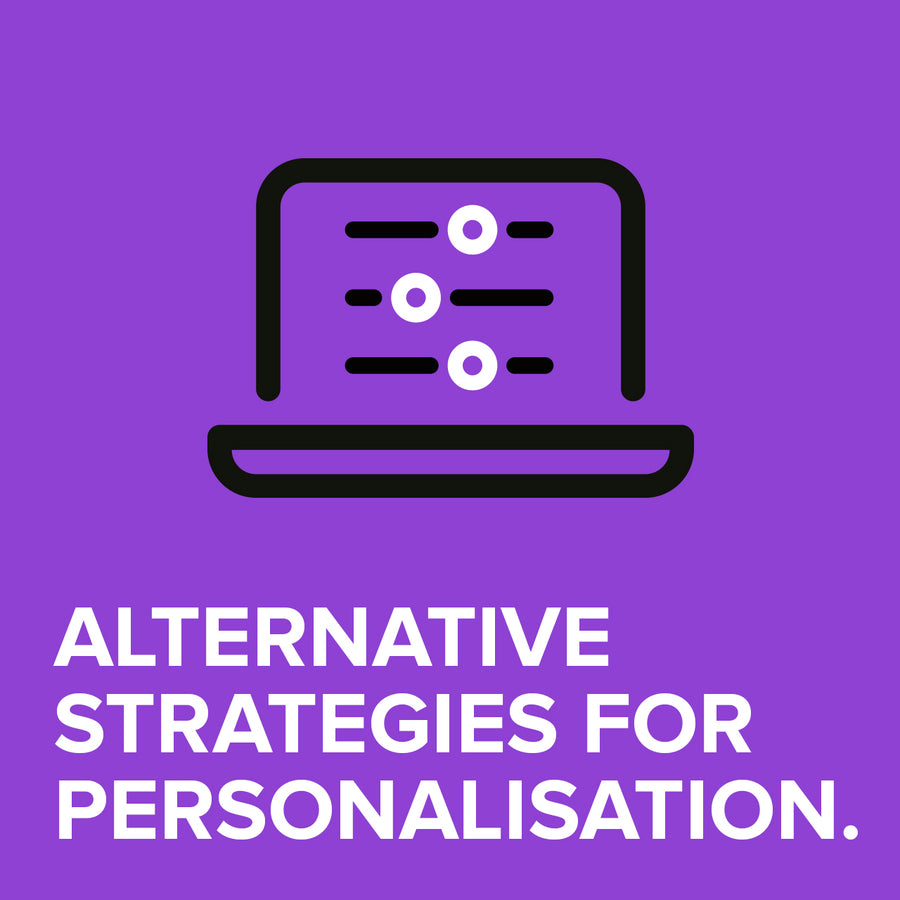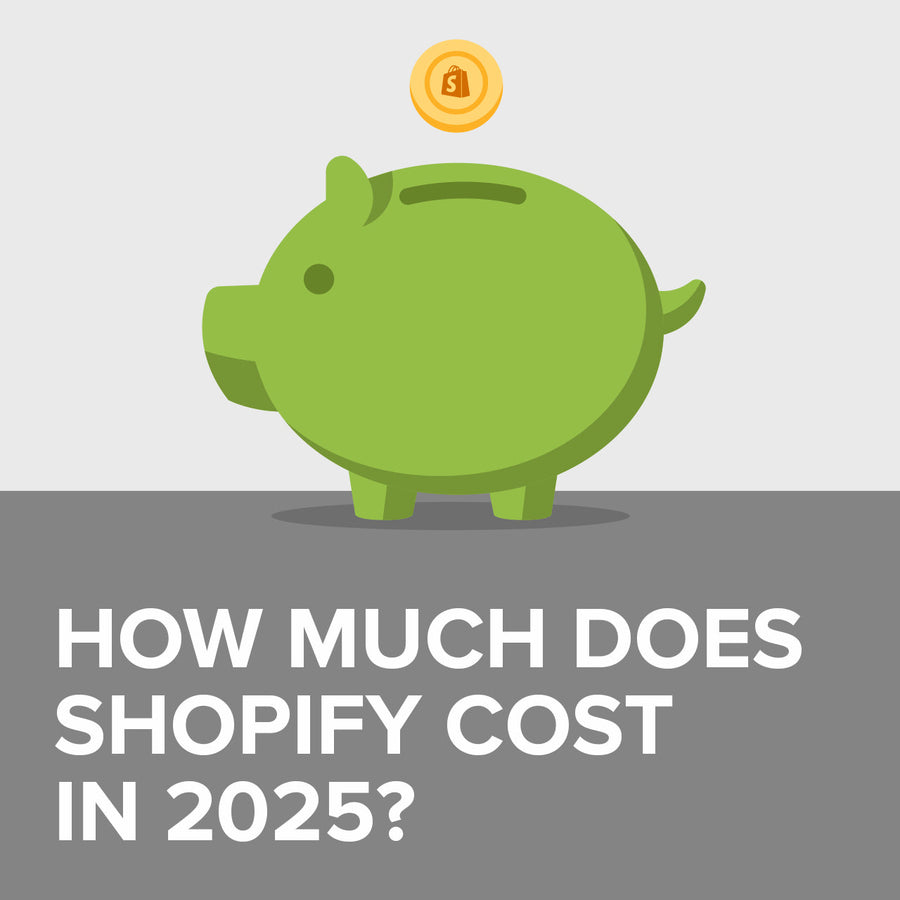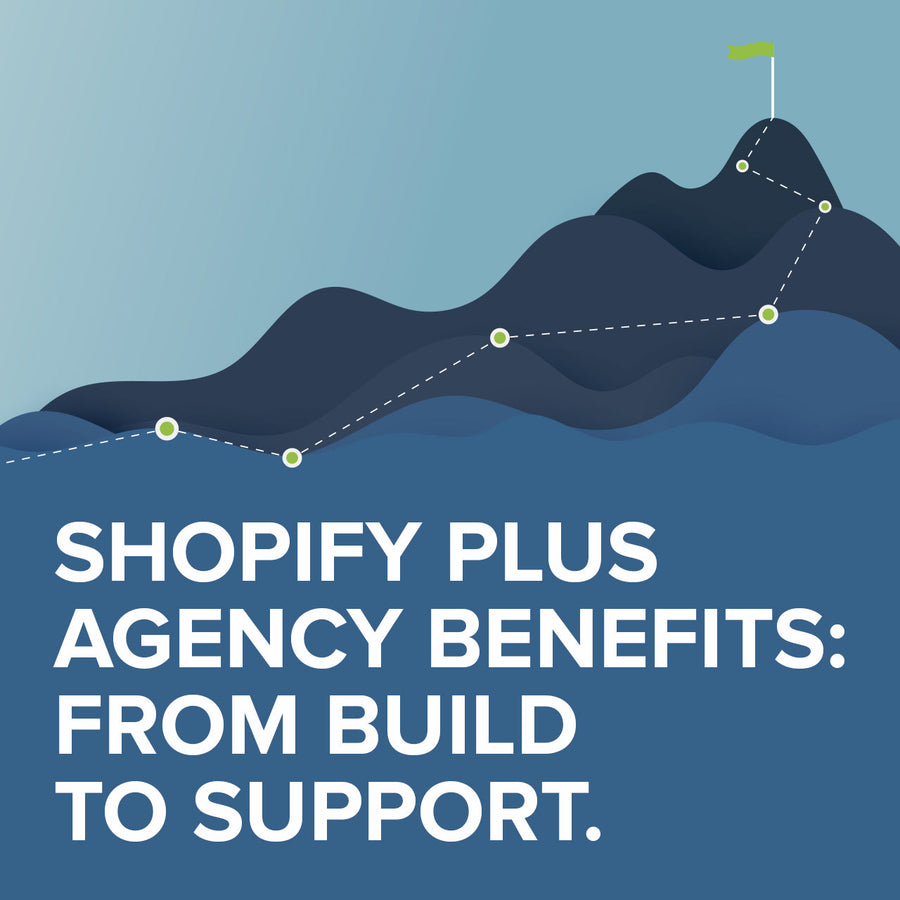Alternative Strategies for Personalisation
27 February 2024

Tired of relying on third-party cookies for personalisation? Discover the power of first-party data and personalisation engines! This new approach keeps you ahead of privacy changes while delivering the tailored experiences customers crave.
Sign up for an exclusive offer from Salesfire now!
In today's competitive eCommerce world, offering customers a personalised experience isn't simply a bonus, it's an expectation. From remembering a customer's name to showcasing items that might genuinely interest them, personalisation makes interactions smoother and encourages shoppers to return.
However, this landscape is shifting. The reliance on third-party cookies, those little bits of data that track users across websites, is fading. Stricter privacy regulations and browsers phasing out their use pose challenges for the way many businesses have tackled personalisation in the past.
The good news? This doesn't spell the end of tailored experiences. Instead, it sparks an exciting time for innovation. Personalisation engines are designed to help you make the most of your own first-party data. This lets you continue to provide relevant and engaging experiences while respecting customer privacy.
The Power of First-Party Data
First-party data is the information you collect directly from your own customers and audience. It's gathered through their interactions with your website, purchases history, and email subscriptions data, such as open rates, click-throughs, and preferences.
Why is First-Party Data So Valuable?
- Accurate & Reliable: Your customers provide this data themselves, reducing errors found in third-party data which is bought from external sources.
- Privacy-Conscious: With increased privacy regulations (like GDPR), first-party data is collected lawfully with customer consent.
- Builds Trust: Demonstrates you value customer information and are using it responsibly to better their experience.
This treasure trove of first-party data lays the foundation for building the personalised experiences that bring customers back. It acts as the fuel for those powerful personalisation engines!
How Personalisation Engines Leverage First-Party Data
Personalisation engines transform your first-party data into tailored experiences across different touchpoints within your eCommerce journey. Here's how they might work:
Overlays and Email Sequences
- Picture this, a customer seems ready to leave your site. A well-timed overlay, triggered by their behaviour, offers a tempting discount or highlights items in their abandoned cart.
- Email sequences that extend beyond the website. Think friendly cart abandonment reminders or follow-ups featuring items related to past purchases, turning interest into sales.
Search and Recommendations
- A smart personalisation engine learns from your customers. Search terms lead to personalised results, getting them to their desired product faster.
- Visual search – a customer uploads a picture and the engine finds visually similar options.
- Additionally, personalisation engines could suggest complementary items, sparking those "add to cart" moments.
Digital Assistant and Messenger
- Forget basic FAQs! These tools respond to a customer's immediate needs. Perhaps it's showcasing a limited-time offer or providing real-time support to answer a buying question. This level of assistance is incredibly valuable.
Benefits of Using Personalisation Engines
Personalisation engines aren't about flashy features for their own sake. They drive tangible results for your business:
- Improved Customer Engagement: Shoppers feeling "seen" leads to greater engagement. From tempting offers triggered by their behaviour to more relevant search results, personalisation engines keep them actively browsing.
- Increased Conversion Rates: The ultimate goal! Personalisation doesn't just feel good, it translates to sales. Timely cart reminders, relevant recommendations… those actions can turn browsing into buying.
- Build Customer Loyalty: Each personalised interaction strengthens the bond with your customers. When they feel your brand understands them, they're more likely to return. A first sale supported by personalisation becomes a loyal, long-term relationship.
Conclusion
It's clear the way we personalise eCommerce experiences is evolving. The "cookie-cutter" approach simply isn't sustainable anymore. The good news is that first-party data holds immense potential, and personalisation engines are designed to unlock it.
From on-site interactions to follow-up messages, these engines leverage the information your customers have willingly shared. This creates experiences that feel both respectful and relevant. As the age of third-party cookies fades further, investing in such solutions positions you for a future where customer satisfaction and business growth go hand-in-hand.
PARTNER OFFER
Ready to experience the power of personalisation?
In partnership with Salesfire, Absolute Design is offering an exclusive 3-month free trial of the Salesfire platform to help you grow your email subscribers at an unprecedented scale. Track and profile your visitors to retarget for future sales with triggered email and SMS campaigns.
Salesfire also empowers you to capture potential customers with targeted overlays, streamline shopping experiences with AI-powered search and enhance recommendations with personalised suggestions in real-time to boost sales.

INSIGHTS
CASE STUDIES

Fired Earth - Shopify Plus
Fired Earth’s move to Shopify Plus marked a major transformation for their B2C and B2B operations, streamlining their product catalogue and delivering a faster, more adaptable eCommerce experience, supporting growth and enhanced customer engagement.
-
Shopify

Carluccio's Coffee Subscription
Discover how we helped Carluccio’s transform their online coffee products, creating a bespoke design, unique user journey and efficient user experience, resulting in an eye-catching subscription service, seamlessly integrated with their Shopify site.
-
Shopify
Enter your email address to sign up to our newsletter, featuring case studies, insights, industry news and much more.
If this is something you would like help with, please get in touch.






